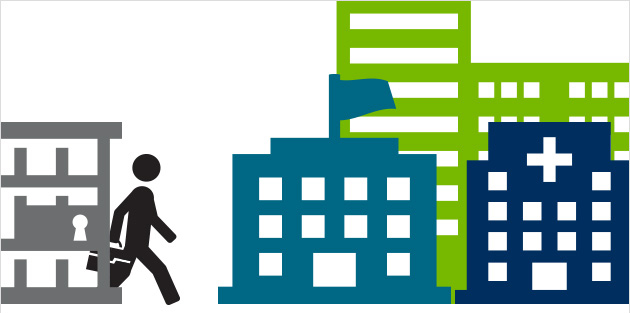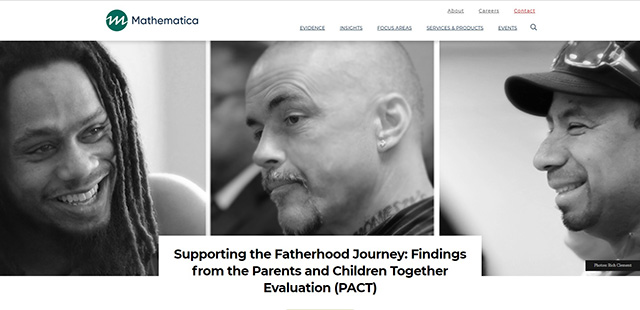Making our criminal justice system more effective at reducing recidivism and helping formerly incarcerated people contribute to society are key policy goals. Preparing people with criminal records for opportunities outside the correctional facility gates might require addressing obstacles to successful reentry and opening opportunities in employment, education, housing, health care, and other areas. Mathematica’s criminal justice research has studied these areas that help to shape reentry for adults and juveniles.
- Employment. Stable employment is critical for ex-offenders to transition back into the community. We are studying the Linking to Employment Activities Pre-Release (LEAP) initiative, which examines whether focused activities and increased coordination between the public workforce system and local correctional facilities before release and during the transition into the community can improve employment outcomes after participants reenter society. The grants support establishing specialized American Job Centers (AJCs) in local jails to provide pre-release services and coordinate the continuation of services in community-based AJCs upon release. We are also examining an initiative to help youth offenders find career pathways and develop productive life paths.
- Education. Youth who have dropped out of high school are at greater risk of long-term unemployment, welfare dependence, and involvement with the criminal justice system than those who finish school. The National Guard Youth ChalleNGe program aims to improve the education, life skills, and employment potential of these dropouts. We are helping administrators understand the program’s potential to serve court-involved youth, a particularly at-risk group of dropouts, and determine the effectiveness of providing robust vocational training to Youth ChalleNGe graduates.
- Housing. Providing assistance with relationship skills, parenting education, and activities to promote family economic stability can make a difference in the lives of those trying to reestablish themselves after incarceration. In the Parents and Children Together (PACT) evaluation, we are studying select responsible fatherhood and healthy marriage grant programs funded in 2011. Programs supported the positive involvement of fathers with their children and helped couples build and sustain healthy relationships and marriages. Findings from our study suggest that more than half of the fathers enrolled in the responsible fatherhood programs involved in PACT, many of whom had criminal convictions, needed housing assistance in addition to mental health, drug treatment, and legal help.
- Health care. Many former inmates lack health care and have untreated medical needs. We have examined efforts such as Health Link, which connected female and adolescent male inmates to health services, finding that the program increased receipt of drug treatment services and might have had a small beneficial effect on drug use. In addition, women’s receipt of preventive care increased.
- Systems change. We are studying broader efforts to reform our nation’s criminal justice policies, including an initiative to help youth offenders in the so-called deep end of the juvenile justice system—typically those who have been adjudicated as delinquent—to decrease the number placed in institutions, boot camps, residential treatment centers, and group homes. The initiative uses a data-driven approach to policy change that relies on coalition building, community engagement, and strategic planning to narrow the pipeline to incarceration for youth while improving racial and gender equity and enhancing service provision.


